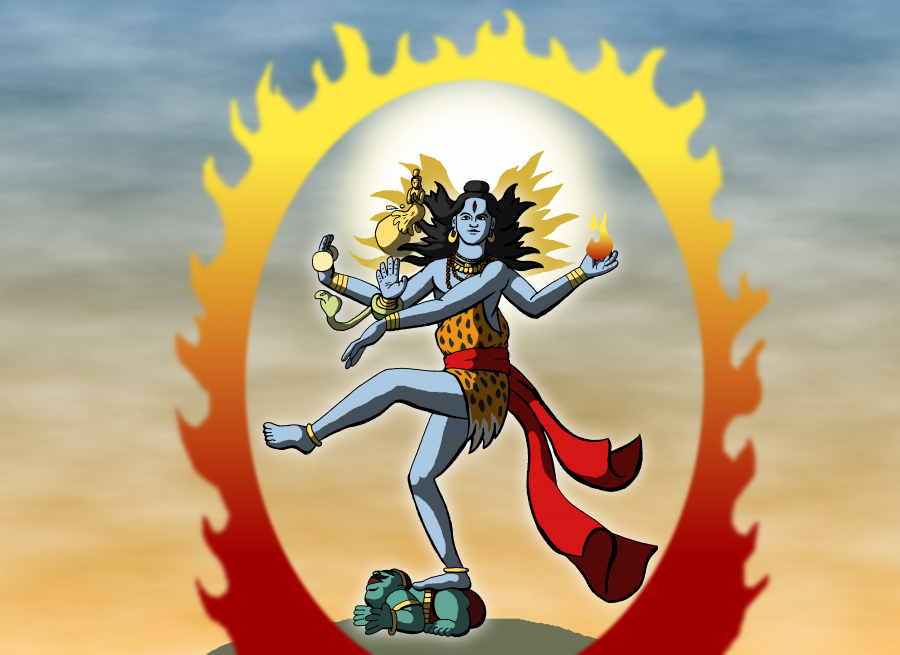A quiet festival, a quaint gathering, where loyal devotees and inquisitive newcomers convene from dusk till dawn, praying and meditating in honor of Shiva.
This Friday is Maha Shivaratri, a holiday which honors Lord Shiva, the Hindu god of destruction and rebirth. On this day, Austin Hindus will flock to their friends’ homes or one of Austin’s several Hindu temples. The Austin Hindu Temple and Community Center will host the festival all night. Followers will keep one another awake while praying, meditating and fasting. The only thing consumed is milk and, if necessary, fruit — yet some go the full term without eating or drinking anything.
“Maha Shivaratri is one of the most auspicious days,” temple visitor Venkata Adavikolanu said. “One of the (most) holy days in Hinduism, actually. People pray to Shiva, fast that day and try to stay awake throughout the night.”
But Shivaratri itself, the worship of Shiva, is a regular practice. The festival serves as a vigil for great moments and legendary feats in Shiva’s life. There are varying beliefs surrounding the motivating story, one being an account in which Shiva survived a night of sacrificial trials.
“Maha is ‘great,’ like ‘mega,’” Adavikolanu said. “So Maha Shivaratri is Great Shivaratri day.”
The temple staff welcome all guests regardless of faith and any visitor regardless of frequency.
“We don’t have a congregation per se. People just come,” said Rao Aradhyula, chairman of the temple’s board of directors.
The temple was built by the community and serves as its backbone. It fulfills several collective obligations, hosting religious ceremonies, festivals and even classes for Hindi and Sanskrit.
“For everything in between, we provide a service,” Aradhyula said. “Whether a baby’s born or somebody died, everything, all the way through, it’s ceremony.”
Temple traditions even influence everyday life.
“Typically, if I buy a new home, I call the priest for a blessing at the home,” Aradhyula said. “If we buy a new car for example, they come and bless it.”
Aradhyula explained the significance of each holy statue and the deities they represent. These statues are treated as conduits to their namesakes.
“Every day in the morning, (worshippers) wake him up, him or her,” Aradhyula said. “Then they do the Naivedya, which is like an offering to the god at certain times in the day.”
A faith of many divinities, Hinduism has a considerably deep, long running history and has even paved the road for other religions.
“Buddhism, Jainism, Sikhism, they all came from Hinduism,” Aradhyula said. “So, you will see some commonalities. There were certain things they didn’t like in Hinduism — they removed those things — but pretty much, these are all the origins.”
This significance of “origin” is evident in every detail of the temple. The priests studied in India, and even the architects and craftsmen are given work visas and flown in to ensure authenticity.
“This temple definitely has a lot of background to it,” visitor Sruthi Adavikolanu said. “Of good hearts, built by good hands. It has a long way to go, yeah. It’s in construction work. It’s a huge temple, comparatively. In Austin, this is one of the biggest temples.”
Aradhyula wanted to impart that it’s important to remember all are welcome, even during prominent events.
“Hinduism is more a way of life. It’s called the sanatana dharma,” said Rao, “It’s a way of life. How you worship, how you live. And yes, we are all Hindus in name, but if somebody wants to become a Hindu they just come and worship, that’s it.”















